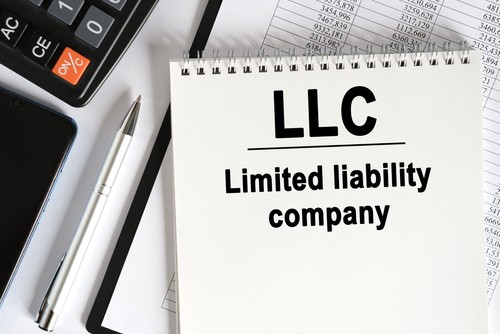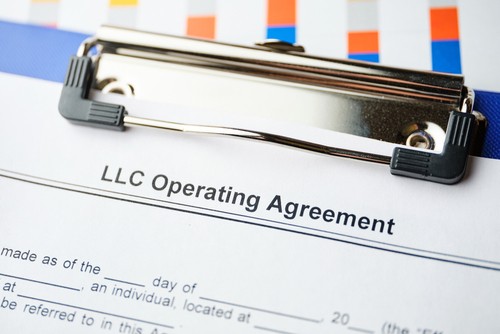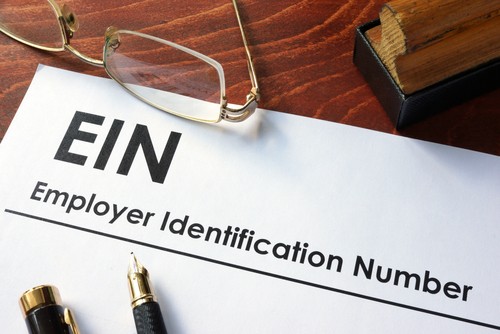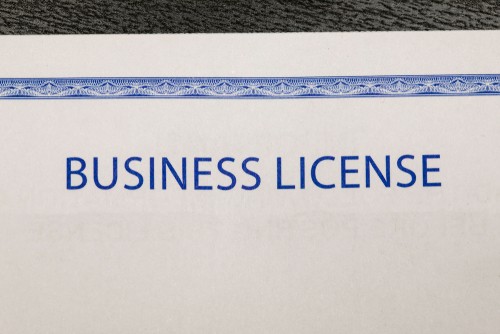If you’re itching to launch a new business in Delaware, you’ve come to the right place.
With business-friendly laws on the books and the widely respected Delaware Court of Chancery in place to address commercial disputes and legal matters, the state is a prime place for undertaking entrepreneurship. Not only have upwards of one million total business entities been started in Delaware, but more than two-thirds of Fortune 500 companies are based out of the small state.
Small business, in particular, is booming in Delaware. The 77,306 small businesses registered in Delaware represent 98.3% of businesses in the First State, according to the U.S. Small Business Administration. Small businesses in the state employ 176,837 people, 45.2% of Delaware employees.
Not every small business is a limited liability company (LLC), but there’s a reason that many are. LLCs are a great choice when you want to keep your company organization simple but still enjoy the benefits of a business structure that is a distinct legal entity from its owners.
Starting an LLC in Delaware is easier than you may think. Still, running a business means that your time is exceptionally valuable. If you would rather concentrate on the process of getting your business endeavor off the ground, you can leave the tedious tasks of filing LLC formation paperwork to a professional service like ZenBusiness. Otherwise, you can follow these 13 simple steps to start an LLC in Delaware.
1. Verify That a Delaware LLC Is the Right Business Structure to Choose

Before you rush into starting a Delaware LLC, make sure you understand your options.
Limited liability companies are such a popular choice of business entity that many new business owners set their sights on this structure without even looking at other options. While LLCs offer some unique benefits, they aren’t the right choice for every business or business owner.
LLC is just one of seven distinct legal business structures recognized by the state of Delaware. Deciding which of these business entities is right for your small business is the first step you should take when starting your new company. The Delaware Division of Corporations suggests that small business owners consult a Certified Public Accountant (CPA) or an attorney when making this decision.
Generally, you should consider choosing an LLC business structure if you:
- Are looking for a way to protect your personal assets from any business debts or liabilities
- Want the flexibility to choose pass-through taxation or corporate taxation practices
You can also find information distinguishing LLCs from other types of business structures, including corporations and sole proprietorships, by consulting the U.S. Small Business Administration.
2. Create a Business Plan for Your LLC

Every LLC should have a business plan to guide and direct the course of your company and make sure you’re meeting milestones in growth and performance.
What Belongs in a Delaware LLC’s Business Plan?
In your business plan, you should include the following sections:
- Executive summary
- Company description
- Market analysis
- Company organization
- Your products or services
- A marketing plan
- Your funding needs
- Financial forecasts
Executive Summary
A thorough business plan can go on for pages upon pages. The executive summary can serve as a quick overview that brings together all of the most important points from each section in one easy-to-access place.
Although the executive summary should be the first item that appears when you open up your business plan, you should write it last, after you have fully fleshed out the remaining sections of the plan.
Company Description
Your company is more than the products it sells or the services it provides. Your description of your company should dig deeper, identifying what makes the organization unique and what strengths and assets equip it to succeed. Think about the customers you will try to appeal to and the problems your company will attempt to solve.
Market Analysis
Businesses don’t thrive or fail in a vacuum. They’re subject to market trends and conditions, including changes in customers’ needs and in competing products, services, and companies. Preparing for success means understanding and analyzing the market now, even before you get the business running.
Company Organization
Your company organization encompasses your legal business structure (LLC) and so much more. Who will manage your business and its different endeavors and divisions? What does your company’s internal hierarchy look like?
Although you don’t need to get too granular when writing your business plan, you should strive to answer the question of who will be responsible for what aspects of the work.
Your Products or Services
Your small business is more than an inventory list, but you can’t fully separate what products and services your company sells from its identity. Use this section of your business plan to identify key details of the products or services you will provide and the way they will improve your customers’ lives.
Don’t forget to address the logistics of managing your supply chain so that you can keep consistently providing your product or service.
A Marketing Plan
Marketing your business is an important part of staying in business. Without customers, you won’t be bringing in any revenue. You don’t have to have all of the details figured out just yet, but you should start thinking early on about how you’re going to get your company’s name out there and start bringing in business.
Your Funding Needs
You’ve probably heard it said that it takes money to make money. Although there are some businesses you can start with just $1,000, $100, or even no money, it’s a lot harder to grow a company successfully when you’re short on capital.
Your business plan should make note of the assets and resources you have. If you’re seeking investment funding, identify the amount of money you’re looking for and how you intend to use it to grow your business.
Financial Forecasts
If your financial goal is simply to “make money,” your thinking is still a bit too vague. Identify the costs of operating your business. Do the math to figure out how much you can realistically expect to make based on the costs and price markups for your products and services and the volume of work you’re able to handle.

Get Help Writing Your Business Plan
The prospect of writing a business plan can be intimidating, but it’s not nearly as hard as it sounds. Having the right tools can make a big impact. A professional service like LivePlan can help you write a business plan without the hassle, plus prepare financial forecasts and statements even if math isn’t your strong suit—all for a low monthly price.
3. Choose a Name for Your LLC

Before you go any further with making your LLC official, you need to decide what to call your company. Choosing a name for a Delaware LLC is a multi-step process that encompasses checking Delaware’s LLC name requirements, verifying name availability, potentially reserving a business name, and more.
Know the Name Requirements for a Delaware LLC
LLCs formed in Delaware can include the use of capital and lowercase letters and numbers. English words, words in other languages, proper nouns, and unique combinations of letters are all fair game under Delaware LLC name requirements. (Names containing foreign language words may require a written English translation to accompany your name registration.)
The state specifically permits LLC names to include the name of a member (owner) or manager of the company, if desired. LLC names in Delaware may also include any of the following words:
- Association
- Club
- Company
- Foundation
- Fund
- Institute
- Limited
- Society
- Syndicate
- Trust
- Union
What must be in the name of your Delaware LLC is one variation of the following, left up to the owner’s preference:
- Limited Liability Company
- L.L.C.
- LLC
Business owners approach naming their companies from a variety of perspectives. Sometimes they use their own name or name a business after a special place or person. Other LLC owners choose a word or phrase that resonates with them or one that sounds catchy and easy to remember. You might want to emphasize your industry in your LLC name so that customers know what products or services you offer.
There’s no right or wrong way to name a business, provided that it follows all requirements for a Delaware LLC name and avoids language that could be considered offensive. Although you want to choose a name right off the bat that fits your company well, it is possible, and often not that difficult, to change your LLC name if you need to do so later.
Check Your Name’s Availability Through a Database Search
Once you know what you want to call your LLC, you have to make sure the name is available. You can do this by running a free search through the online name database maintained by the Delaware Division of Corporations.
Just type the name you would like to use into the “entity name” field on the database search webpage and click “Search.” The database will tell you if there is an active or inactive entity registered in the state of Delaware with that name. If so, this search will also provide information about that company’s phone number, address, date of formation, registered agent, and file number.
If your search yields no results, you can move forward with claiming the name for your company. If other businesses are already using that name, you may need to consider new options and repeat your name search until you find a unique name that suits your company.
Reserving a Name
For some small business owners, officially reserving a name is the next step. Filling out an Application for Name Reservation for an LLC ensures that no one else can use that name for a period of 120 days.
You might decide to reserve an LLC name if you want to make sure that name is available but you’re not ready to make your LLC official just yet. Aspiring small business owners should know, though, that name reservation isn’t a required step in the process of starting a Delaware LLC.
There are three main reasons new business owners might skip reserving an LLC name altogether.
- Reserving a name is not the same as forming a business under that name. You still have to file the proper paperwork to establish a business under the name you have reserved.
- There is an additional $75 fee, on top of the other costs of forming an LLC, to reserve a business name in Delaware.
- Business name reservations are only temporary. If you don’t get around to submitting the forms needed to make your Delaware LLC official within that 120-day period, someone else can come along and claim the name you reserved once that timeframe ends. You can file an Application for Re-Reservation for an LLC name, but you will have to pay a second $75 fee to do so, and it still only buys you another 120 days.
Unless you plan to keep re-reserving the name you want over and over again—and paying a fee each time—it only makes sense to reserve a business name in Delaware if you’re going to be ready to file your Certificate of Formation within that 120-day reservation period.
Legal Name vs. DBA Name
Just because you choose one name to serve as your company’s legal name doesn’t mean that you’re locked into only doing business under that appellation. Companies often choose to register a “doing business as” (DBA) name, a nickname under which they are legally allowed to conduct business.
In Delaware, business owners have to register DBA names with their county’s Prothonotary Office. To do this, complete the Registration of Trade, Business, & Fictitious Name Certificate and submit it to the appropriate county Prothonotary Office.
Beyond Choosing a Business Name
Besides your LLC’s legal name and any DBA names, you should also give some thought to choosing a domain name. Maintaining a web presence is necessary for modern businesses in just about any industry, regardless of the size of the company.
The domain name that houses your company website doesn’t have to match your legal name or your DBA name, although it can. GoDaddy’s domain name search is the perfect place to begin checking availability and pricing out domain name options for your small business.
Once you have chosen your LLC’s legal name, DBA names, and domain name, you might consider trademarking those names to make sure they belong solely to you. Trademarking your business name isn’t required, and other Delaware businesses won’t be able to form under the same legal name you have chosen for your company. Still, obtaining a trademark offers extra protection of your company’s ownership of and right to use these names.
If you’re considering a trademark, you should look into both state and national trademark registration. In Delaware, you need to submit an Application for Registration of Trademark/Service Mark. To secure a national trademark, you would start by running a trademark database search through the United States Patent and Trademark Office (USPTO).
Successfully securing a trademark isn’t easy, so it may be worth hiring a trademark attorney to assist you. You can start looking for a qualified lawyer through LegalZoom.
4. File a Certificate of Formation with the Delaware Division of Corporations
In Delaware, you don’t officially have an LLC until you file a Certificate of Formation of a Limited Liability Company with the Division of Corporations. The easiest way to file your Certificate of Formation is online using the Division of Corporations Document Upload Service, available weekdays during limited hours.
Delaware LLC Certificate of Formation Requirements
To streamline the process of completing your Certificate of Formation, it’s a good idea to find out what you need in advance and gather that information together.
Fortunately, as government forms go, the Certificate of Formation of a Limited Liability Company is actually fairly straightforward. The simple, one-page form requires only the following information:
- The name of the LLC
- The registered agent and office information
- The name and signature of the authorized person completing the form
Adding Your LLC Name to the Certificate of Formation
Make sure you input the company name exactly as you want it to appear in legal government records. Double-check spelling, grammar, and punctuation before submitting the form. Be sure to include some variation of “Limited Liability Company,” “L.L.C.,” or “LLC” in the company name, as required under Delaware law.
If you make a typo, spelling error, or another kind of mistake in the name of your company on your Certificate of Formation, you will have to file a form called a Certificate of Correction and pay a $200 fee to set things right.
What Is a Registered Agent?
The second and final numbered requirement that appears on Delaware’s Certificate of Formation of a Limited Liability Company is information about a registered agent and registered office.
Think of a registered agent (and the physical office out of which they work) as the party you designate to accept legal and tax documents on behalf of your company. These official documents include service of process documents that notify companies of a lawsuit filed against them.
All LLCs formed in Delaware are required to appoint a registered agent. You must include the name of that individual and the address of their office (called the registered office) on your LLC’s Certificate of Formation.
Choosing a Registered Agent
In Delaware, a company can serve as its own registered agent as long as its physical location is in the state, the Division of Corporations reported. This is an unusual option, since many states prohibit LLCs from serving as their own registered agent (although a member or manager of the company may do so).
If you don’t want your LLC (or one of its members) to act as the company’s registered agent, you will need to appoint someone who meets the legal requirements to be a registered agent. These requirements include:
- Being available during normal business hours to accept service of process and other legal and formal documents
- Maintaining a physical street address in the state of Delaware
- Retaining and forwarding these documents to the company
To avoid the inconvenience of having to be constantly available on-site at the registered office, many LLC owners opt to pay for professional registered agent services.
The Division of Corporations maintains an online list of Delaware registered agents. These Listed Agents must meet standards established by the state to be included on the list. LLC owners aren’t required to choose a registered agent included in this list. ZenBusiness is an example of a professional registered agent service that is popular with business owners across the country.
LLCs can change their registered agent. To do so, they must file a special Certificate of Amendment Changing Only the Registered Office/Agent of Limited Liability Company form. The state charges a $50 fee to process this form.
Authorized Person
The person who files the Certificate of Formation paperwork is required to include their own printed name and signature as the “authorized person.” You personally can serve as the authorized person when forming an LLC, as can others involved in your entity. However, you may also have a professional, such as an attorney or a registered agent from a paid service, act as the authorized person.
Delaware State Fees for LLC Formation
To file a Certificate of Formation in Delaware, LLC owners will pay a $90 fee. Once you complete your Certificate of Formation, you are entitled to a stamped “Filed” copy of the certificate at no charge. If you would like a certified copy of this legal document, you will have to pay an additional fee of $50.
Final Thoughts to Keep in Mind About Filing Your Certificate of Formation
If you’re planning to register a DBA name for your LLC, make sure you do so promptly after the certificate of formation is filed. The state of Delaware may impose fines of up to $100 and/or prison terms of up to three months on the members of LLCs who do business under a fictitious name that has not been properly registered in accordance with state law. If an LLC plans to use a DBA name in multiple counties, it should register the name in each county.
Filing the Certificate of Formation is an essential part of starting a Delaware LLC, but the task can be somewhat tedious or intimidating. If you already have too much on your plate preparing the company to start doing business, consider hiring a professional service, like ZenBusiness or LegalZoom, to file the paperwork for you.
Both of these paid services do a great job reliably handling the details of LLC formation, but if we had to choose just one to recommend, it would be ZenBusiness for its ease of use. What’s great about ZenBusiness is that even the lowest-priced Starter plan includes registered agent services as part of its standard filing service, so you won’t have to pay separate entities to file your forms and act as your registered agent.
5. Write an Operating Agreement

The smart step to take after you file your Certificate of LLC Formation is to write an operating agreement. You aren’t legally required to submit this document to the state, as you do with the Certificate of Formation, but that doesn’t make it any less important.
Having a written operating agreement—a legal contract—in place establishes the rules for how the company will run and how it will handle the changes and challenges that arise in the course of its business.
What’s in an Operating Agreement?
Make sure your operating agreement includes:
- The date and location of the founding of the company
- The names of the company’s owners, also known as members
- Whether the organization is member-managed or manager-managed
- Ownership structure, or who owns what percent of the company
- The amount of capital each member is contributing to the LLC
- How the company’s profits will be distributed among members
- Members’ voting rights, responsibilities, and voting procedures
- The procedures for adding or removing members from an LLC or for transferring ownership of the company
- How to go about dissolving the LLC and shutting down the company
How to Write Your Operating Agreement
Your operating agreement is a binding legal contract. Any mistake or oversight in it can open your company up to disputes between members or make the procedures for growing your business unclear.
It’s crucial to make sure the language of your operating agreement covers every contingency. This is one area of the LLC formation process in which it’s worth paying for professional help, even if you opt to do most of the work yourself.
The good news is that you don’t have to spend a lot of money to get a professional-quality operating agreement. You can use LegalZoom to find an attorney and view sample operating agreements. If you hire ZenBusiness to assist you with LLC formation, a customizable operating agreement is included in all plan levels.
6. Apply for a Federal EIN

An important part of the process of forming an LLC in any state is getting set up to pay federal taxes on your company’s revenue. You do this by applying for a federal employer identification number (EIN) from the Internal Revenue Service (IRS).
A federal EIN is your company’s tax identification number. You use this ID number for federal tax reporting purposes. You may also need this number for banking, including setting up your own small business bank account, and as you apply for business licenses.
LLC owners can apply for their EIN online using the IRS Online EIN Assistant Portal. The service is free, and applicants can receive their tax ID number immediately. If you use the business formation services from ZenBusiness, applying for your federal EIN is one of the services included in the Pro and Premium plans.
7. Open a Company Bank Account

Now that your LLC is set up, you need to start off managing your company’s finances on the right foot.
Although the LLC business structure establishes your company as its own separate legal entity, mixing your business assets with your personal assets muddies that distinction. Even if you’re the only owner of the LLC and you are legally entitled to all of its profits, failing to keep business assets separate can undermine the liability protection an LLC is supposed to provide.
Neglecting to keep personal and business assets separate can also backfire when you’re looking for capital to grow your company. Whether you’re seeking a traditional business loan or looking for investors, not being able to clearly show your company’s operating costs and profitability will make potential funders think twice about financing your business.
The good news is that separating your company’s assets from your own assets is as simple as establishing a business bank account.
What You Need to Open a Business Bank Account for Your Delaware LLC
To open a bank account for your new business, you will need identification documents for you and your business.
- Be prepared to provide at least two forms of personal identification, such as a driver’s license or state ID card.
- To confirm your company’s identity, make sure you have your federal EIN and your operating agreement.
In Delaware, banks and financial institutions often ask for a certified copy of your Certificate of Formation or a Certificate of Good Standing. You can get these documents from the Delaware Division of Corporations. The state charges a fee of $50 for a Short Form Certificate of Status or $175 for a Long Form Certificate of Status.
Securing these copies is as easy as including the request in your business filing form. To make sure you’re asking for the right form (and not paying more than you have to), it may be a good idea to find out what specific documents your bank requires to open a business account.
Choosing a Delaware Business Bank Account
How do you select a business bank account? It’s a good idea to compare your options and weigh factors like fees, account benefits, and restrictions like minimum balance requirements.
Choosing a national bank offers the flexibility of in-person banking locations wherever you go, not to mention a more extensive range of products and services and, often, better rates. Two of the top national banks to consider for a Delaware business bank account are:
- PNC Bank, which has 36 branches (6 full-service branches and 27 ATMs) in 20 Delaware cities, including numerous locations in Wilmington and Newark
- Wells Fargo, which has 17 Banks and 33 ATMs across Delaware, including locations in Dover, Newark, New Castle, Wilmington, Middletown, and Hockessin
Small business owners sometimes prefer to work with regional banks. Two of the regional banks with the most branch locations in the state include:
- M&T Bank, which has 37 branches spread across 23 cities in Delaware
- WSFS Bank, which is headquartered in Wilmington, DE, and operates 42 banking offices throughout the state
Getting a Business Credit Card for Your Delaware LLC
Spending money is part of running a company, and a business credit card is usually the best method of paying for the things your business needs.
After all, you don’t want to have to write a check every time you need to make a business purchase. Paying cash for business expenses is less than ideal in terms of recordkeeping. Even a debit card linked to your business bank account isn’t the best option, especially because debit cards tend to offer less fraud protection than credit cards do.
Having a dedicated business credit card makes it easy to pay for your company’s expenses without mixing up your personal assets with your company’s assets. Small business owners enjoy numerous benefits of using a business credit card, including easy recordkeeping, the ability to add managers and key company representatives as authorized users on the account, and the chance to earn valuable rewards on the money you’re already spending, anyway.
Not all business credit cards are equally rewarding, and different businesses benefit more from different cards. If business trips are important in your company, the best business credit cards for you might be the ones that offer generous rewards in airline miles. On the other hand, if you rarely travel for business, a cashback card may be a better fit for your company.
Business Bookkeeping for LLCs
Setting up a separate bank account is just one aspect of managing your company’s finances. You also need to establish strong business bookkeeping practices. Staying on top of the books year-round—not just at tax time—is important so that you understand how much money your company is spending and where it’s going.
If you plan to do the bookkeeping in-house, QuickBooks is an easy-to-use, easy-to-learn tool that makes the task simple. Small business owners who would rather outsource their bookkeeping needs should consider a cloud solution like Bench Accounting.
8. Pay Your Annual Delaware Taxes
Delaware is known for having no state or local sales tax, but that doesn’t mean small businesses have no state tax obligation. LLCs in Delaware are required to pay an annual tax of $300 to the state by June 1st, the Division of Corporations reported. They do not, however, have to file a corporate annual report (and pay the associated filing fee) or pay the same corporate franchise tax that corporations are required to pay.
Other requirements for Delaware businesses that are not formed as corporations—including LLCs—include an annual business license. If you sell what the state calls “tangible property,” you also need a retail license or wholesaler license and, possibly, payments of a gross receipts tax, the Delaware Division of Revenue reported.
Navigating the different kinds of taxes imposed by different levels of government can be tricky, and missing any of these tax requirements could cost your business big time. If you’re having trouble keeping on top of it all, it’s a great idea to enlist the help of a CPA. The Delaware Society of Certified Public Accountants is the best place to start when you need to find a CPA.
9. Register Your LLC as an Employer With the Delaware Department of Labor

If your LLC will be hiring employees, you have certain obligations as an employer. These obligations include registering the company with the Division of Unemployment Insurance, the Offices of Workers’ Compensation, and the Division of Revenue (for a withholding account).
Does Your LLC Need to Hire Employees?
These requirements only apply to LLCs that hire employees. If the only workers are the members of the LLC and they are compensated with an owner’s draw instead of an employee’s salary, then you can skip this step.
When bringing on help for your LLC, you need to make sure you are categorizing workers correctly. For in-house employees who you hire to be part of your company, typically (but not always) on a permanent or long-term basis, you will need to withhold taxes, pay into the state unemployment program, and purchase workers’ compensation insurance.
That’s not the case if you’re hiring professionals as independent contractors. Workers classified as independent contractors rather than employees usually assist companies on a per-project basis. When companies hire an independent contractor, the relationship is fundamentally different from an employer-employee relationship.
Hiring an independent contractor instead of an employee means you have only the level of control over the work that a client has over a company whose services they purchase. If you’re looking for more control over the worker, then you must classify them as an employee or risk facing steep penalties and fines for misclassification.
How to Register as an Employer With the Delaware Department of Labor
Employers in Delaware need to register their business to obtain their Department of Labor Division of Unemployment Insurance Employer Account Number.
Within the first 20 days your LLC is in operation, you should file the “Report to Determine Liability and if Liable Application for Employer Account Number” Form, also known as Form UC-1. For help with this form or to request to have a paper copy mailed to you, contact the Unemployment Insurance Employer Contributions Unit at (302) 761-8484 or DOL_UI_Employer_Tax_Questions@state.de.us.
Once you have your Employer Account Number, you can use the Department of Labor’s Online Employer Services Portal to file your quarterly unemployment insurance tax reports online and to make payments.
Delaware employers must also comply with workers’ compensation law and create a withholding account with the Division of Revenue. Fortunately, you can knock out these obligations relatively quickly—and start the process of securing your Delaware business license—using the Delaware One Stop online tool.
To fulfill their obligations with regards to the workers’ compensation program, employers in Delaware may purchase a workers’ comp insurance policy from any private insurance agency that is licensed to sell this type of coverage in the state. If you can’t get workers’ compensation coverage on the voluntary market, your LLC is eligible for “assumed risk” coverage through the Delaware Workers Compensation Insurance Plan (DIP), but this coverage is much more expensive.
Planning for Payroll
Between accounting for unemployment insurance taxes and withholding payments for federal and state income taxes, managing payroll for an LLC with employees can get complicated. A payroll provider service will run your payroll operations to keep your LLC in compliance while you focus on actually managing the company.
There are plenty of payroll providers out there, but we prefer Gusto. This user-friendly full-service payroll provider allows LLC owners to handle payroll, employee benefits, and much more. We love that it integrates with popular bookkeeping tools like Bench to make every aspect of managing your obligations as an employer easier.
10. Apply for Delaware Licenses and Permits

LLCs in Delaware must acquire a business license. The Delaware One Stop online tool allows you to register your business with the Division of Revenue and apply for your business license. Business licenses in Delaware are issued on an annual basis and can be renewed online through the One Stop tool.
All businesses in Delaware should apply for a state business license, but some LLCs will need additional licenses and permits. Some of the types of business licenses your company may need could include:
- Professional licenses required in your industry
- Municipal licenses and permits
- County licenses and permits
LLC owners should check with their county and municipality to determine what additional licenses and permits they may need besides the general Delaware business license. You can consult the Index of State of Delaware Business Licenses and Registrations for help determining what professional and industry-specific licensing laws apply to your company.
Failing to have the right licenses in place could get your company in trouble. If you need more help figuring out which licenses you need for your LLC, LegalZoom’s Business Licenses tool can help.
11. Protect the Owners and the Company

The legal structure of an LLC is designed to protect you, the individual, from liability for the company’s debts and financial losses. However, starting a business does open the door to at least some amount of risk. Smart business owners take steps to minimize this risk and protect themselves and their company.
Protection and Risk Mitigation for LLC Owners in Delaware
In this guide to forming an LLC in Delaware, we have already talked about several tools and procedures used to reduce the risk of going into business:
- The operating agreement that outlines owners’ rights and responsibilities and provides guidance for the LLC’s future operations
- LLC formation itself, which establishes a company as a legal entity distinct from its owners
- A company bank account that reinforces this distinction by keeping your LLC’s finances separate from your personal finances
- A business credit card that allows you to purchase what your company needs on its own line of credit not linked to your personal finances and provides fraud protection benefits, so you don’t have to worry about theft and unauthorized charges
- The licenses and permits that authorize your company and its workers to legally undertake work in your industry
This is a great start, but LLC owners still have two important tasks to do to protect their companies: sign legal documents correctly and purchase insurance coverage.
How to Sign Legal Documents as an LLC
Now that your company exists as its own legal entity, you need to be careful when signing legal documents. When you sign any kind of legal document on behalf of the LLC, you need to sign as a representative of the business, rather than as an individual. This may seem like a minor distinction, but failing to distinguish between your personal signature and your signature as the LLC’s owner could blur the line between you and your company.
Here’s how we structure signature sections on contracts in order to reflect the separate legal existence of the company. Feel free to steal this:
Agreed to:
_[Your Company Name]_
By: _Your Signature_
Its: _Founder and Owner [or whatever other title you use]_
Getting Insurance for a Delaware LLC
There will always be some risk involved in running a business, but having the right kinds of insurance can minimize your company’s financial liabilities.
For many LLC owners, the question isn’t whether they should get insurance (they should!) but instead what kinds of insurance they really need. Some types of business insurance coverages include:
- General liability insurance
- Professional liability insurance, such as malpractice insurance in the medical and legal industries
- Errors and omissions insurance
- Commercial property insurance
- Commercial auto insurance
- Cybersecurity insurance
- Employment practices liability insurance
- Directors and officers insurance
- Umbrella insurance policies
A great place to start to figure out your LLC’s insurance needs is Hiscox, an insurance company that works exclusively with small businesses and provides tailored insurance solutions for more than 180 different professions.
12. Protect Your Intellectual Property

One specific aspect of your business that needs protection is its intellectual property (IP). You might not think about safeguarding your LLC’s intellectual property because these assets aren’t (necessarily) tangible.
What Is IP and Why Does It Matter?
The World Intellectual Property Organization defines IP as “creations of the mind,” which may include anything from inventions to works of art in any media and even the unique names given to companies and their products and services.
Your LLC’s intellectual property is an important aspect of its assets. If you’ve developed a new technology used in the products or services you provide, your intellectual property is integral to your business. Even if not, though, your IP matters because it’s how clients and customers recognize your company. A competitor stealing your company’s look, logo, slogans, or the names of its products and services could ruin your business.
Think about your LLC’s intellectual property as everything that sets your company apart from other companies in the industry. If you can’t protect it, then your business runs the risk of blending into the background, unnoticed and unsuccessful.
Types of Intellectual Property
There are many types of intellectual property and specific ways business owners can go about protecting them.
- Trademarks apply to names, slogans, and symbols.
- Patents apply to inventions and designs.
- Copyrights apply to creative works. Works of visual, musical, and literary art can be copyrighted, but so can software programs, articles of a less than literary nature, and architectural works.
- Trade dress is a form of intellectual property that applies to the packaging and visual appearance of a product.
- Trade secrets, like secret recipes and formulas, are another form of intellectual property. Trade secrets may include any pattern, device, process, program, algorithm, method, technique, or client list, according to the World Intellectual Property Organization. What makes a piece of intellectual property a trade secret is the fact that its secrecy contributes to its value in some way, often by giving the company some advantage its competitor doesn’t have.
How a Delaware LLC Can Protect Its Intellectual Property
Now that you’re aware of what forms of intellectual property your LLC may have and why it matters, the next question is how you can protect it.
IP Protection Under the United States Patent and Trademark Office
Filing a patent, copyright, or trademark is an important step.
Register a copyright online through the Electronic Copyright Office (eCO) Registration System. You can also apply for a patent online through the EFS-Web tool.
The process of registering a trademark is a bit more complicated. The trademark application process begins with searching the Trademark Electronic Search System (TESS) to make sure your IP isn’t so similar to existing trademarks that it is likely to lead to confusion. Then you would have to identify and classify the goods and services your LLC offers, specify your legal filing basis, and make sure you choose the right application form—the Trademark Electronic Application System (TEAS) Plus or the TEAS Standard—to file electronically.
In Delaware, you can also file Trademark and Service Mark registrations with the Secretary of State to protect your IP within the state, according to the DE Division of Corporations.
How Your Business Contracts Can Protect Your LLC’s Intellectual Property
Besides filing for formal protection of intellectual property under the federal government, many LLCs choose to use IP agreements in the course of their business. These agreements may include non-disclosure agreements (NDAs) and confidentiality agreements that apply to workers, as well as independent contractor agreements for work you outsource to other companies.
A Work Made for Hire Agreement may help your company retain ownership of any intellectual property created for it. You might ask workers, both in-house and independent, to sign a non-solicitation agreement that keeps them from soliciting your LLC’s clients and customers.
You may even request that workers sign a non-compete agreement that restricts a worker from working for a competitor while or even after working for your company. However, a non-compete agreement that is too restrictive may be difficult to enforce, since companies generally don’t have a legal right to permanently ban their former employees from working in the industry or the geographical area.
Getting Help With Intellectual Property Protection
Figuring out a strategy to protect all of your LLC’s intellectual property can be complicated. You don’t have to fumble through this complex legal and business area all on your own. If you have questions about which methods of IP protection are right for your company—or if you would rather pay a professional to deal with it so you can spend your time on other things—the Intellectual Property Portal on LegalZoom can help.
13. Comply with Local Tax Requirements

You know you have to pay federal and state income tax for your business. What you might not know is whether your county and municipality also impose their own taxes on businesses. Not knowing isn’t a valid excuse for not paying these taxes, so LLC owners need to proactively seek out information. Check with the county and city where your company is located to determine what your tax obligations are.
You might also have separate tax obligations, or at least separate forms to fill out, based on your industry and the products you sell or the services you provide. The Division of Revenue’s collection of Business Tax Forms provides additional information and downloadable forms for industries that range from sales of alcoholic beverages to petroleum wholesaling.
Conclusion to How to Start an LLC in Delaware
This whole time you’ve been dreaming of starting a business, it hasn’t been paperwork and insurance coverage that piqued your interest. If anything, the logistics of starting a company have probably discouraged you from moving forward with the business launch. Seeing the long list of steps you need to take may feel more discouraging than anything for a prospective small business owner deciding whether to take the plunge.
It’s easy to get bogged down with the minutiae of business formation and compliance, but your passion for this adventure in entrepreneurship is so much bigger than a stack of (mostly digital) paperwork. You can do this.
The logistics of LLC formation may seem intimidating, but they’re also short-lived. Once your company is officially up and running, you just have to maintain compliance through relatively painless steps like renewing licenses and filing routine reports and payments. The rest of the time, you can focus on actually running your business.
You don’t have to undertake LLC formation alone. Remember, a company like ZenBusiness can take care of the whole process for you at a price that’s surprisingly affordable and, for many new business owners, unquestionably worthwhile.
Small businesses are born every day. Isn’t it time you made your dreams of running your own company a reality?
LLC Resources
How to Start an LLC in California
How to Start an LLC in Florida
How to Start an LLC in Texas
How to Start an LLC in New York
How to Start an LLC in Illinois
